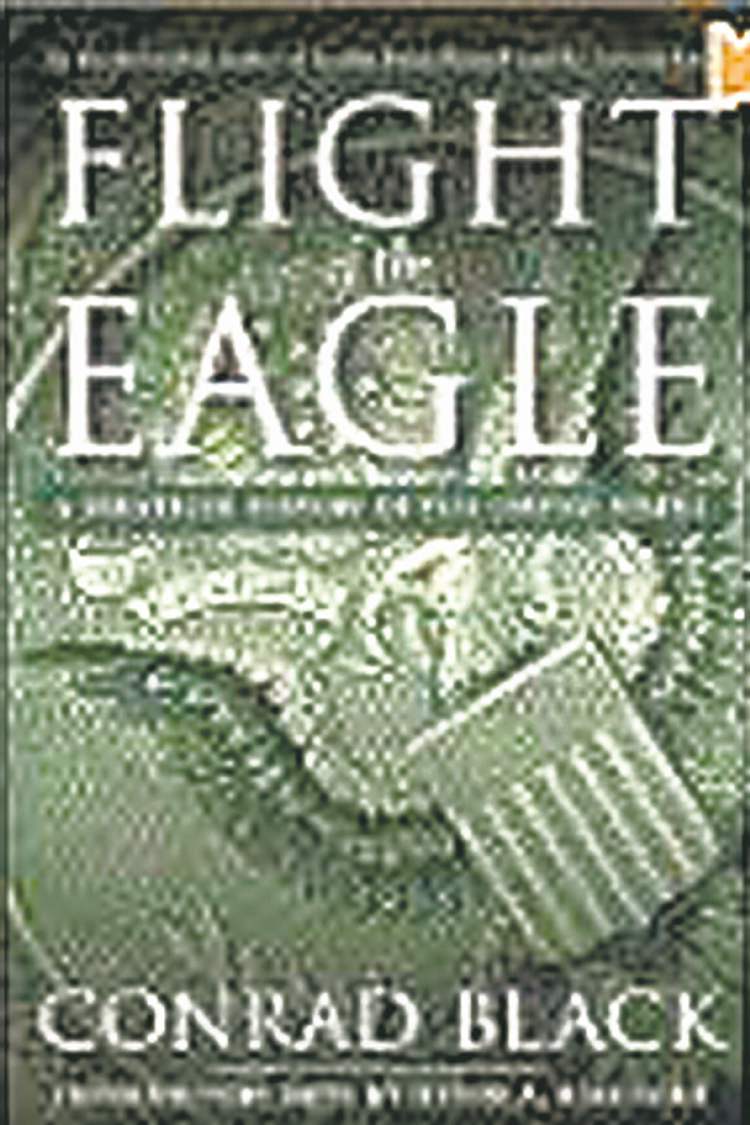Energetic, lucid Black still praises Nixon
Advertisement
Read this article for free:
or
Already have an account? Log in here »
To continue reading, please subscribe:
Monthly Digital Subscription
$0 for the first 4 weeks*
- Enjoy unlimited reading on winnipegfreepress.com
- Read the E-Edition, our digital replica newspaper
- Access News Break, our award-winning app
- Play interactive puzzles
*No charge for 4 weeks then price increases to the regular rate of $19.00 plus GST every four weeks. Offer available to new and qualified returning subscribers only. Cancel any time.
Monthly Digital Subscription
$4.75/week*
- Enjoy unlimited reading on winnipegfreepress.com
- Read the E-Edition, our digital replica newspaper
- Access News Break, our award-winning app
- Play interactive puzzles
*Billed as $19 plus GST every four weeks. Cancel any time.
To continue reading, please subscribe:
Add Free Press access to your Brandon Sun subscription for only an additional
$1 for the first 4 weeks*
*Your next subscription payment will increase by $1.00 and you will be charged $16.99 plus GST for four weeks. After four weeks, your payment will increase to $23.99 plus GST every four weeks.
Read unlimited articles for free today:
or
Already have an account? Log in here »
Hey there, time traveller!
This article was published 25/05/2013 (4582 days ago), so information in it may no longer be current.
Ever since his fall from the heights of the newspaper publishing world, Conrad Black has shown a voracious appetite for literary achievement. Long historical biographies of American political leaders have become his intellectual passion.
In this thick new volume, which covers an even larger U.S. canvas, he writes with boundless energy, graceful lucidity, considerable learning and unremitting hostility to the U.S. justice system (the “prosecutacacy”) that imprisoned him. An introduction by Henry Kissinger assures the reader that Black understands all the complexities of “balance-of-power” diplomacy.
In spite of its subtitle suggesting foreign policy as a main theme, Flight of the Eagle is, for the most part, conventional political narrative emphasizing the succession of presidential administrations and great debates in the national councils. The strength of his method is to show how politics at home shaped U.S. relations beyond its borders, especially in the 19th-century attempts to fix or expand those borders.

Black is at his best in finding majesty in moments of national crisis: Lincoln embattled in the Civil War, strangling secession, moving to abolish slavery, and being embraced by adoring freed slaves in Richmond; Franklin Roosevelt staving off the worst of the depression by novel governmental intervention to provide social security, and then gradually bringing a reluctant people to face an overseas war against Hitler.
The years 1937-1945, Black says, witnessed Roosevelt’s great “strategic triumph,” comparable to Lincoln’s conduct of the Civil War.
There is a body of conspiracy belief, mostly centred in the right-wing of the Republican Party, that condemns Roosevelt as a traitor deliberately arranging to have American sailors murdered at Pearl Harbor in 1941 and giving away, in 1945, two-thirds of Europe to Josef Stalin at the Yalta conference. Black will have none of this.
Although the book is sometimes enlivened by Black’s irreverence for the soaring rhetoric and spread-eagle nationalism of American public speech (“humbug” and “hypocrisy”), many passages wobble unevenly between sprightly argument and dull textbook-ese. The “American rape of its southern neighbour” in a campaign of “swaddled imperialism” during the Mexican War is certainly not the usual American textbook fare.
Black’s lack of familiarity with primary sources produces gaffes. Thomas Jefferson, an early Democrat, was an “elitist,” even if he favoured a broader voting public.
Perhaps. But letters between the two old rivals in old age show Jefferson refuting John Adams’ claim that birth, wealth and high family reputation generally prevail in politics.
Jefferson envisaged a future public school system that would find the “natural aristocracy” of ability and talent among the plain people. That talent emerged, as Black himself recognizes, in the careers of Lincoln, Grant, Truman, Eisenhower, Nixon, Reagan and Clinton.
Among the poor boys who made good, Richard Nixon, in Black’s eyes, stands out as an imaginative and visionary leader. He reminds us of great achievements: the 1972 opening to China and the Shanghai Communique, a world-changing event that may have prodded the Soviet Union into a quicker acceptance of the first strategic arms limitation agreement.

His unstinting praise of Nixon and Kissinger seeking an end to the American war in Vietnam betrays no hint of current scholarly controversies on the key question: could they have had the same terms in 1969, or certainly in 1971, that they finally accepted in 1973?
Excellent historians have argued that these uneasy partners were guided by political cynicism, delaying peace and ensuring the deaths of many thousands more.
In the end, Nixon was, Black complains, forced to resign in disgrace by vindictive partisans paying back old scores for the anti-communist demagogy of the early career. It does not bother Black that the majority of the American people, the official Republican Party, and almost everyone outside the Nixon family and loyal entourage disagrees with him.
Garin Burbank is a retired American history professor at the University of Winnipeg.

